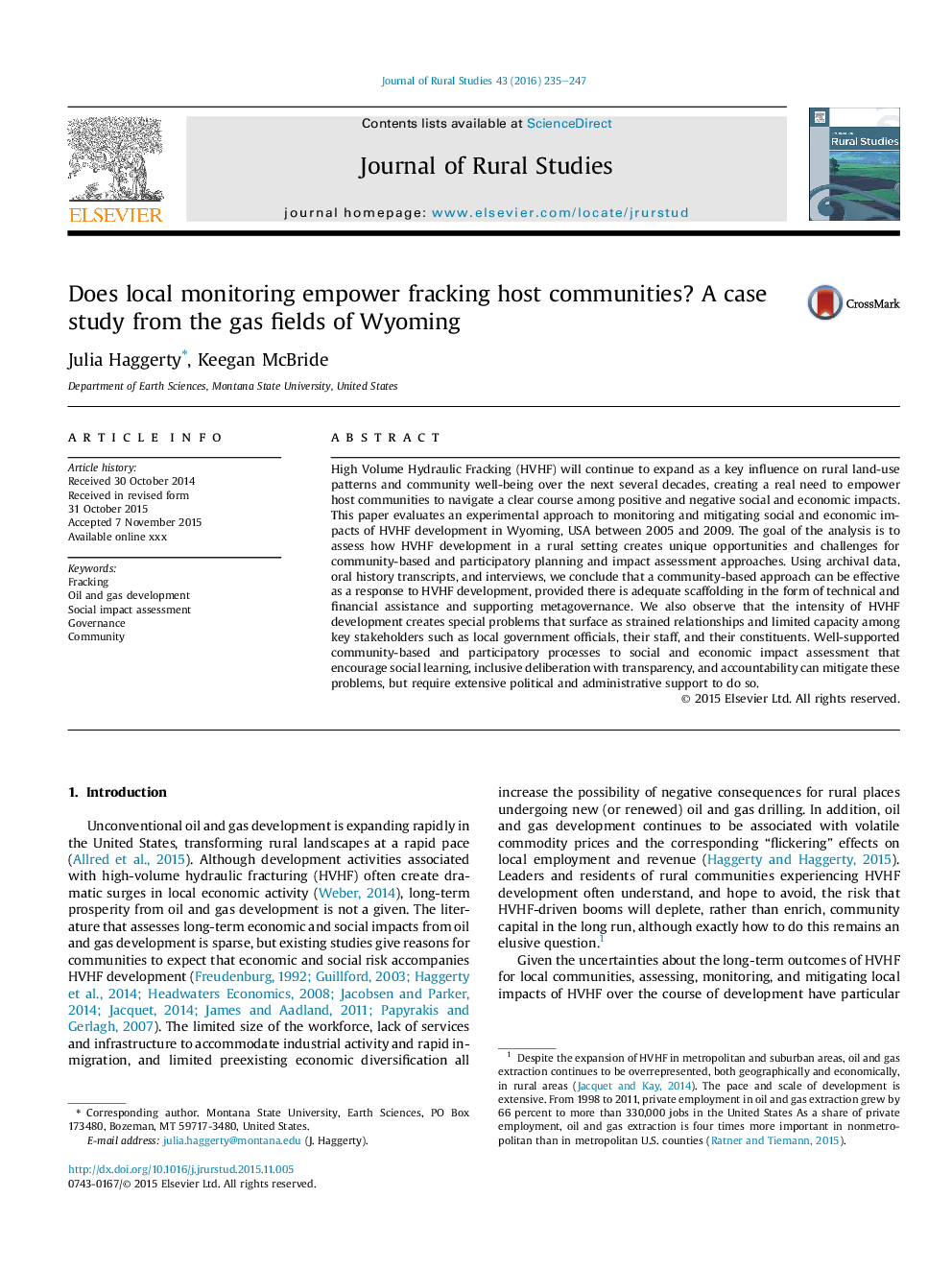| Article ID | Journal | Published Year | Pages | File Type |
|---|---|---|---|---|
| 6545558 | Journal of Rural Studies | 2016 | 13 Pages |
Abstract
High Volume Hydraulic Fracking (HVHF) will continue to expand as a key influence on rural land-use patterns and community well-being over the next several decades, creating a real need to empower host communities to navigate a clear course among positive and negative social and economic impacts. This paper evaluates an experimental approach to monitoring and mitigating social and economic impacts of HVHF development in Wyoming, USA between 2005 and 2009. The goal of the analysis is to assess how HVHF development in a rural setting creates unique opportunities and challenges for community-based and participatory planning and impact assessment approaches. Using archival data, oral history transcripts, and interviews, we conclude that a community-based approach can be effective as a response to HVHF development, provided there is adequate scaffolding in the form of technical and financial assistance and supporting metagovernance. We also observe that the intensity of HVHF development creates special problems that surface as strained relationships and limited capacity among key stakeholders such as local government officials, their staff, and their constituents. Well-supported community-based and participatory processes to social and economic impact assessment that encourage social learning, inclusive deliberation with transparency, and accountability can mitigate these problems, but require extensive political and administrative support to do so.
Related Topics
Life Sciences
Agricultural and Biological Sciences
Forestry
Authors
Julia Haggerty, Keegan McBride,
